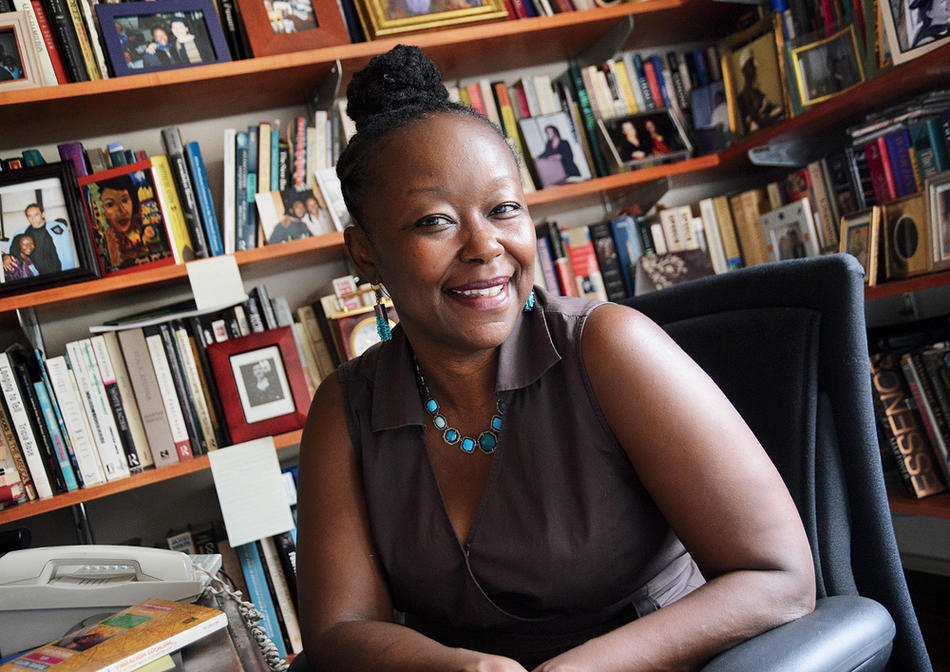University Creates Department of African American and African Diaspora Studies
Columbia recently established its first academic department dedicated to African-American studies. Farah Jasmine Griffin, a professor of English and comparative literature and an expert on African-American culture, history, and politics, has been named the inaugural chair.
The University has long offered courses in African-American studies through its Institute for Research in African-American Studies, which administers bachelor’s and master’s degree programs in the subject. But the new African American and African Diaspora Studies Department will have more autonomy to hire professors and grant tenure, and greater influence over the University’s intellectual agenda.
“We’re institutionalizing a lot of work that was already being done in the field of African-American studies here in the form of a department, because departments have the most power at universities, and the most longevity,” says Griffin.
The new department has a core of eight faculty members who were already affiliated with the Institute for Research in African-American Studies and who have joint appointments in departments such as history, sociology, philosophy, music, anthropology, religion, and English. Expanding their ranks, Griffin says, is among her first priorities.
“In particular, we would like to bring in more academics with expertise studying the African diaspora, or peoples of African descent in the Caribbean, Latin America, Europe, and other places, in addition to the United States,” Griffin says. “We’re also looking at creating new positions in the humanities and perhaps bringing an economist to the department.”
Beyond that, Griffin is developing a proposal to create Columbia’s first PhD program in African-American studies. “Right now, our master’s program is basically preparing our students to get doctorates elsewhere,” she says.
With the new department in place, Griffin says that the Institute for Research in African-American Studies, which was founded in 1993 by the late Manning Marable and which Griffin also directs, will focus on building bridges between scholarship and public life by developing conferences, symposia, and exhibitions. “One of our plans is to build public programming around a multi-year celebration of the Harlem Renaissance ‘New Negro’ movement of the 1920s, because so much of the institute’s identity is its connection to Harlem,” she says.
By bringing a fresh approach to the study of Black history and culture, Griffin hopes that the new department will inspire Columbia students to become engaged in social-justice issues both in the US and around the world.
“Columbia has a deep commitment to creating just societies, and African-American and African-diaspora studies have always been at the forefront of pursuing questions like: "What does a just society look like? And what has life been like for people who haven’t experienced our country as a just society?” Griffin says. “We need to understand our history — both its ugly parts and its potential — to achieve a vision of America that might not be predominant right now.”



